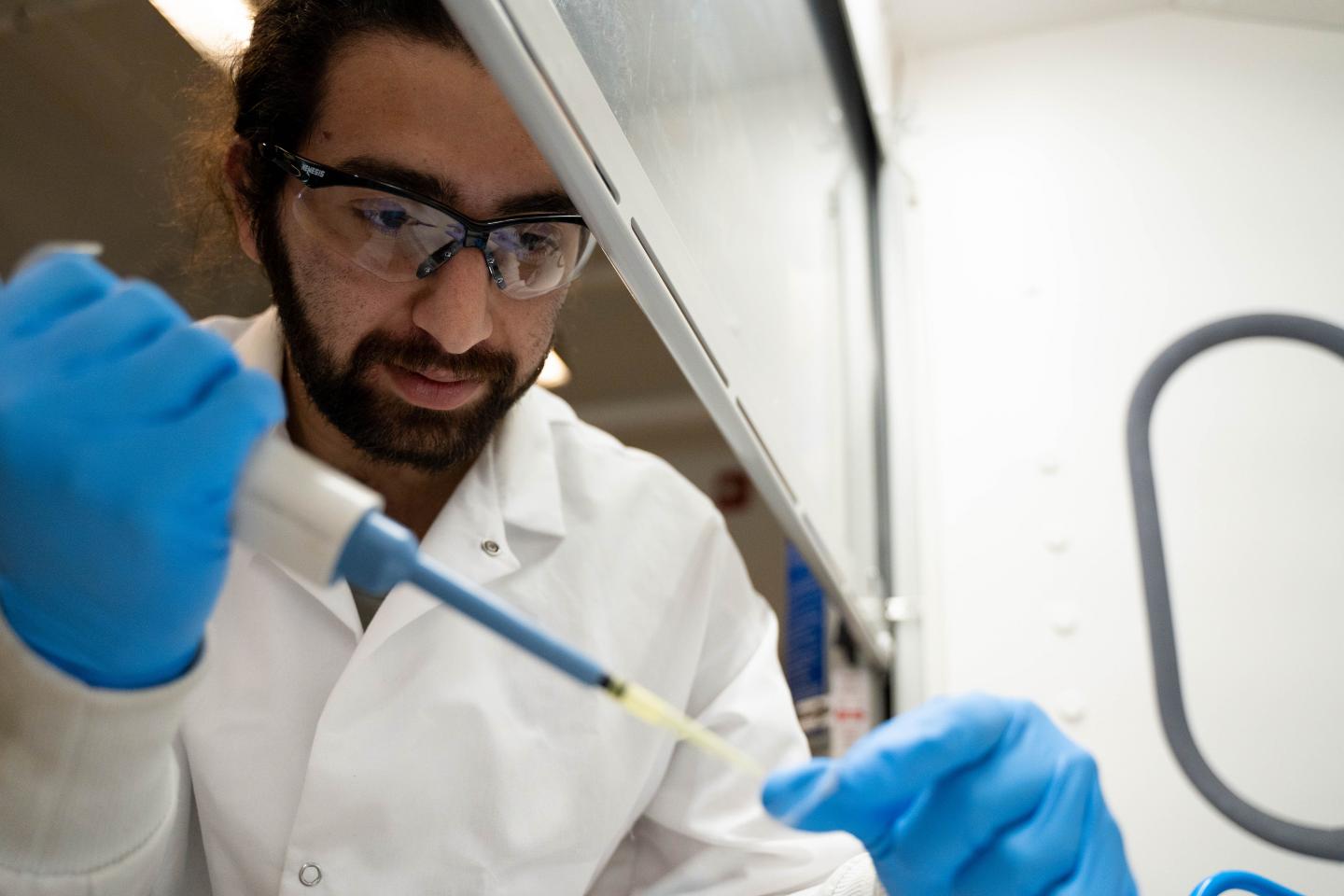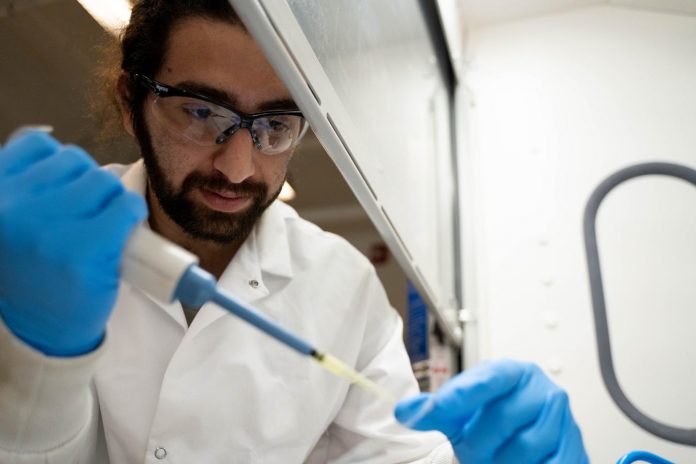
IMAGE: UBCO master’s student Behrooz Khatir measures liquid to be applied to an omniphobic film during testing inside the OPERA lab at UBC Okanagan’s School of Engineering.
view more
Credit: UBCO
Acting like an invisible force field, a new liquid coating being developed by UBC Okanagan researchers may provide an extra layer of protection for front-line workers.
Researchers at the Okanagan Polymer Engineering Research and Applications (OPERA) Lab have developed a coating that repels nearly all substances off a surface. And that new coating will make cleaning personal protective equipment a little bit easier for front-line health care workers, explains Kevin Golovin, an assistant professor at UBCO’s School of Engineering and director at OPERA.
Surfaces that can repel a broad range of liquids are called omniphobic, explains UBCO master’s student and lead author of the study Behrooz Khatir. Working in Golovin’s lab, Khatir has created a spray-on solution that can make any surface, including a face shield, omniphobic.
“Omniphobic–all-liquid repellent–films can repel a broad range of liquids, but the applicability of these coatings has always been limited to silicon wafers or smooth glass,” says Khatir. “This new formulation can coat and protect just about any surface, including metals, paper, ceramics and even plastics.”
The two-layer coating involves placing an ultra-smooth silica layer on a surface and then functionalizing this layer with a highly-reactive silicone to effectively block all kinds of liquids from sticking on the surface, explains Golovin.
Not only does the coating repel countless substances, but even under harsh exposures like UV light, acids and high temperatures, the coating maintains its resistance qualities. And Golovin notes, if the coating does become damaged it can be easily and repeatedly repaired, fully restoring the omniphobic properties to their initial state.
Golovin recently received COVID-19 funding from the Natural Sciences and Engineering Research Council (NSERC) to optimize the coating for health care face shields so they stay clean, in partnership with Kelowna-based survivability products manufacturer PRE Labs Inc.
“This technology has many applications, but we are currently focused on providing a solution that will keep our nurses and doctors safe and effective,” says Golovin. “This new coating will prevent droplets or microbes from sticking to a face shield. This makes disinfecting face shields feasible just with water rather than requiring complex disinfectant procedures.”
The original research was recently published in the ACS Applied Materials & Interfaces journal, with funding support from NSERC.
###
TDnews















